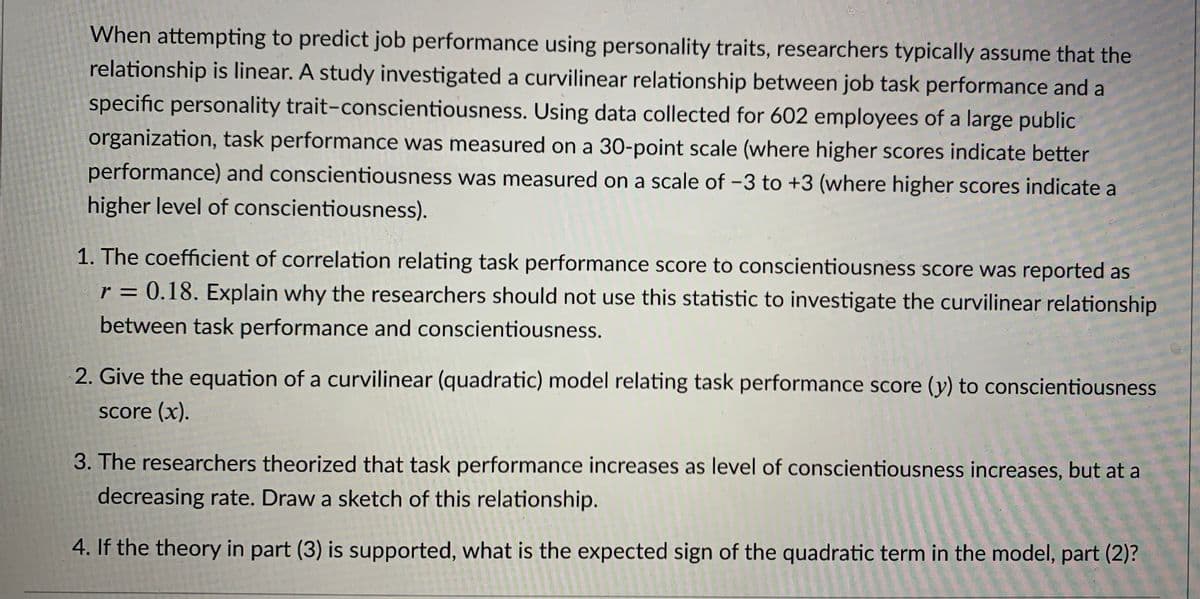1. The coefficient of correlation relating task performance score to conscientiousness score was reported as r = 0.18. Explain why the researchers should not use this statistic to investigate the curvilinear relationship between task performance and conscientiousness. 2. Give the equation of a curvilinear (quadratic) model relating task performance score (y) to conscientiousness score (x). 3. The researchers theorized that task performance increases as level of conscientiousness increases, but at a decreasing rate. Draw a sketch of this relationship. 4. If the theory in part (3) is supported, what is the expected sign of the quadratic term in the model, part (2)?
Correlation
Correlation defines a relationship between two independent variables. It tells the degree to which variables move in relation to each other. When two sets of data are related to each other, there is a correlation between them.
Linear Correlation
A correlation is used to determine the relationships between numerical and categorical variables. In other words, it is an indicator of how things are connected to one another. The correlation analysis is the study of how variables are related.
Regression Analysis
Regression analysis is a statistical method in which it estimates the relationship between a dependent variable and one or more independent variable. In simple terms dependent variable is called as outcome variable and independent variable is called as predictors. Regression analysis is one of the methods to find the trends in data. The independent variable used in Regression analysis is named Predictor variable. It offers data of an associated dependent variable regarding a particular outcome.

Step by step
Solved in 2 steps with 1 images




